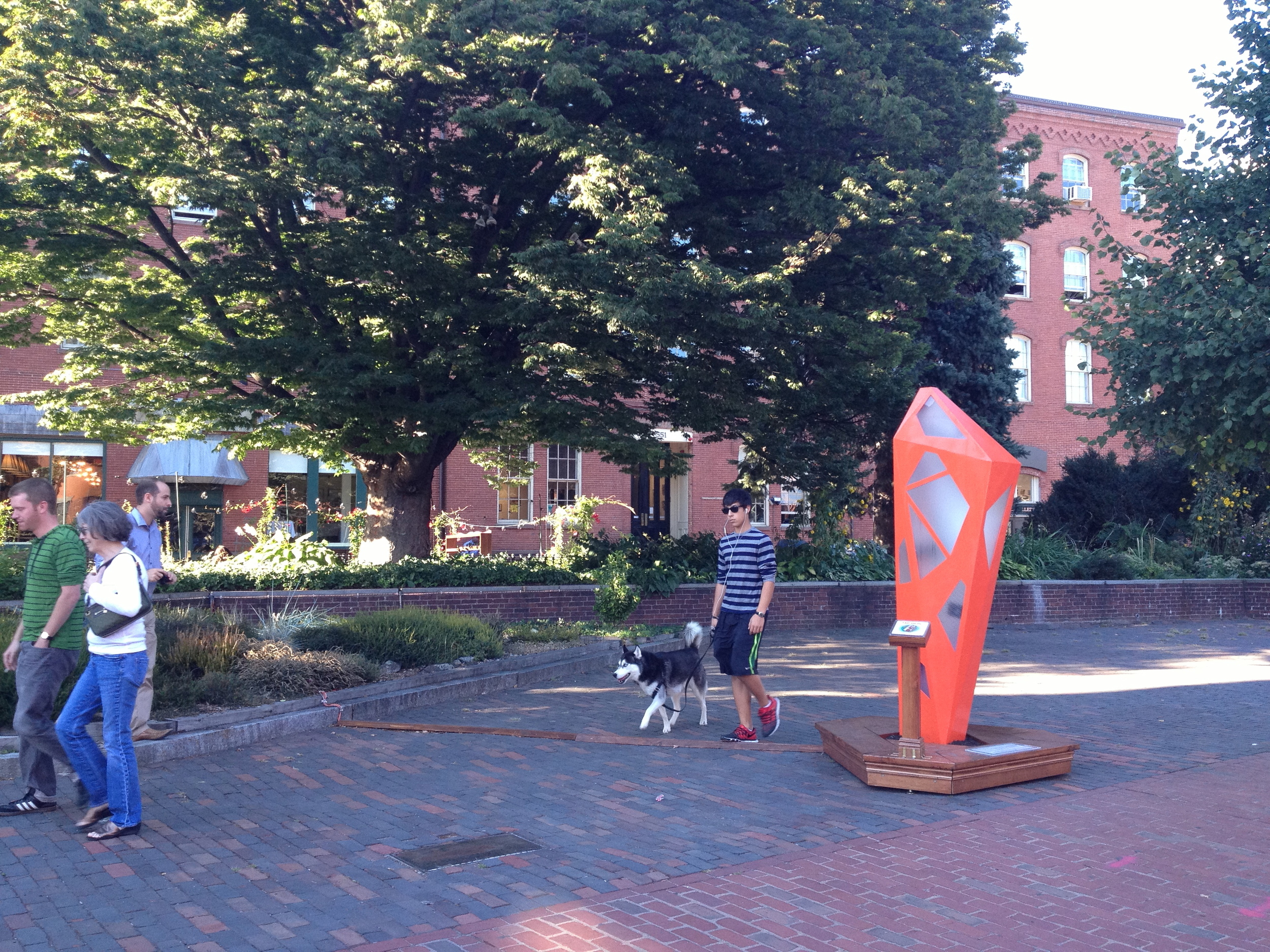Culture Tap
Culture Tap is a series of interactive kiosks which celebrate Boston's culture and history, activated by a Charlie Card. They integrate oral histories, environmental lighting, and data collection for a holistic approach to placemaking, quantitative metrics, and local Boston pride. Since each Charlie Card has a unique RFID number, different cards play different stories and activate different lighting combinations at each kiosk.
Stories by Day : Swiping a Charlie Card during daylight hours plays a short audio clip of a story relevant to the locality - a historical anecdote, a tale of a man who met his wife at the nearby bus stop, or any number of other stories depending on the specific RFID number.
Lights By Night : After sunset a Charlie Card swipe activates environmental lighting near the kiosk, which may illuminate the surrounding architecture, foliage, or sidewalk. Swipes with different Cards change the target or the color of the lights, depending on the specific RFID number.
The User Perspective
We believe people are intrinsically curious about their surroundings and history. Researching these aspects of culture via smartphone or other such portal is too slow, too impersonal, and too isolating. Culture Tap is immediate: a Charlie Card tap will instantly give you a satisfying and unusual anecdote or factoid. Culture Tap is accessible: anyone can obtain a Charlie Card for free, most locals carry them all the time, and activating the kiosk costs nothing. Culture Tap offers social engagement: you can hear different stories and see more lights if you travel with a buddy, or even ask a friendly stranger to tap their card for you. People can hear about and change their surroundings, and interact with other people to get a rich tapestry of culture – all with the swipe of a card.
The Business / City Perspective
Collecting data from each Charlie Card interaction builds a quantitative view of street-level pedestrian flow and participation. Such data are useful to community business owners, transportation networks, sociologists, and new media artists. Quantitative information about site use drives future developments. This project provides such information.
Detailed Technology
Culture Tap kiosks are powered by a micro-controller called the Rascal. This micro-controller is an 'internet ready' combination of two other popular micro-controllers, the Arduino and the Raspberry Pi. When connected to the internet via an ethernet cable, the Rascal acts as a web server that can be accessed from anywhere, using any standard web browser. This means a user can securely log in and change settings or upload new stories with ease, remotely. The Rascal is also the brains behind the data logging and metrics, and has an onboard memory of 4 gigabytes. The Rascal runs on a Linux operating system and can be programed through a web interface using the Python and Javascript languages.
Boston Center for the Arts
Temporary Public Art Residency Project
539 Tremont Street, Boston MA
2013
Dan Sternof Beyer, Bevan Weissman,
Greg MacGlashing, Brandon Stafford
Special Thanks :
Boston Center for the Arts
Johnathan Talit
Massachusetts Bay Transportation Authority
Artisans Asylum
The Internet
Ariel DiOrio





